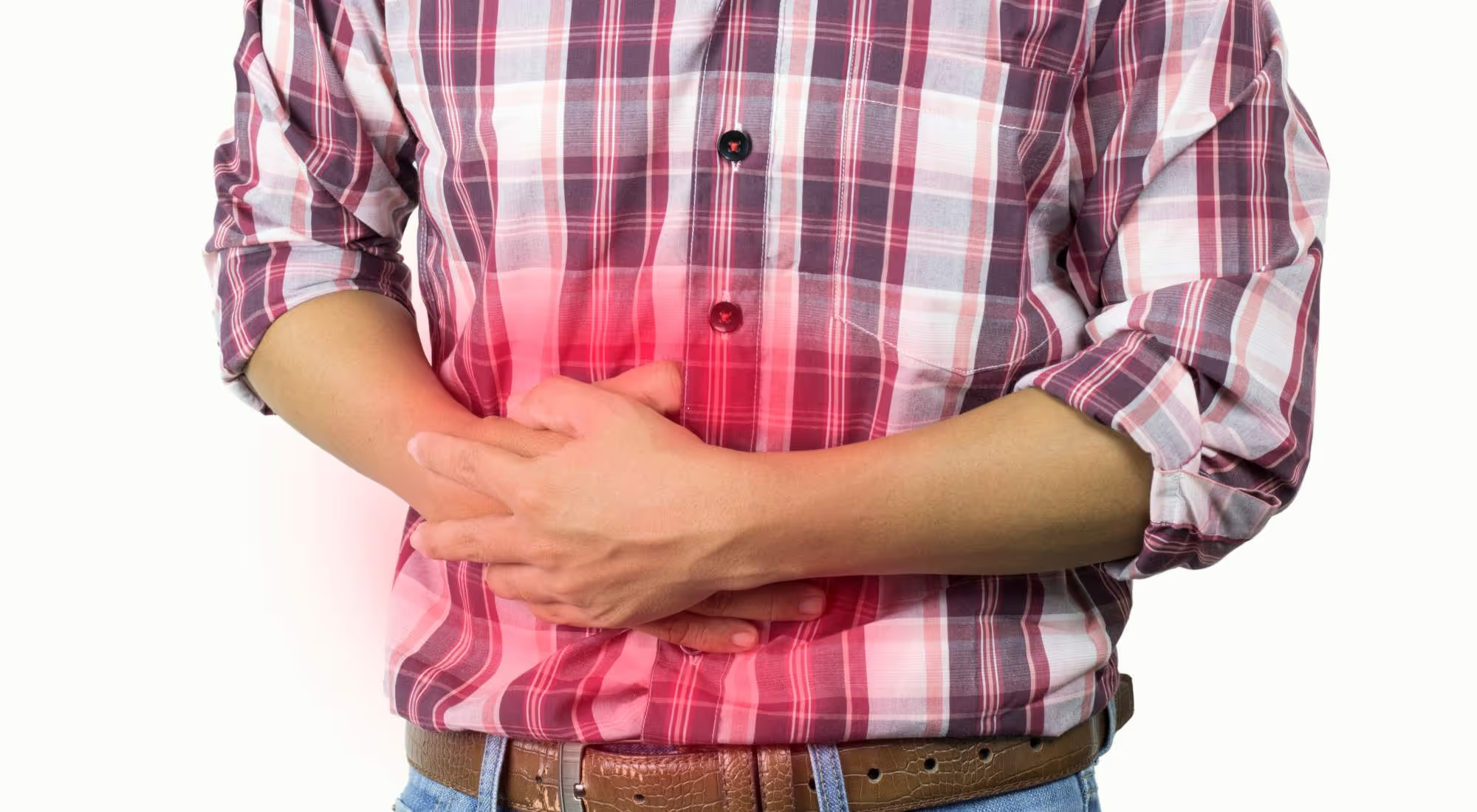Alcohol and Ulcers: How Drinking Affects Your Gut Health

Each drink washes away the stomach’s natural shield, leaving raw, angry sores exposed to acid and pain.
Ulcers throb and burn like open wounds, turning every meal into a battlefield. With every sip, the fire deepens, eroding tissue, slowing healing, and inviting dangerous complications.
But beneath the surface, recovery begins with understanding.
Shifting habits and embracing support can calm the fire inside.
At Dove Recovery, thoughtful care and tailored guidance light the path to healing, helping you reclaim your gut and your life. Keep reading to learn about the symptoms of ulcers and the support available if you’re ready to stop or cut down on drinking.
Table of Contents
- What Are Stomach Ulcers?
- How Alcohol Impacts the Digestive Tract
- Can Alcohol Cause Stomach Ulcers?
- Treating Ulcers: Why Quitting Alcohol Matters
- Frequently Asked Questions About Alcohol and Stomach Ulcers
- Ready to Heal? Find Compassionate, Individualized Support at Dove Recovery
Stomach ulcers, also known as gastric ulcers or peptic ulcers, are open sores that develop on the lining of the stomach. These painful lesions occur when the protective mucus layer that shields your stomach from harsh digestive acids breaks down. Without this barrier, stomach acid eats away at the tissue, causing irritation and inflammation.
Common symptoms of stomach ulcers include:
- Burning or gnawing pain in the upper abdomen, especially between meals or at night
- Bloating
- Nausea
- Vomiting
- Loss of appetite
In severe cases, bleeding can appear as dark, tarry stools or vomiting blood. When left untreated, ulcers can lead to serious complications, making early recognition and care essential.
Before ulcers develop, alcohol sets the stage by disrupting the digestive system in several harmful ways:
- Irritation, inflammation, and erosion of the stomach lining
- Increased acid production and delayed healing
- Synergistic effect with other ulcer-causing factors, such as NSAIDs or H. pylori
Recent research underscores the extensive damage alcohol inflicts on the digestive system. A 2023 review highlighted that excessive alcohol consumption leads to pathological changes throughout the digestive tract, from the mouth to the large intestine.
These changes include:
- Leaky gut
- Dysbiosis
- Alterations in the intestinal epithelium and immune functions
Collectively, these conditions are termed alcohol-associated bowel disease (ABD).
Alcohol doesn’t directly cause ulcers, but it can make existing ones worse. It irritates the stomach lining, weakens its natural defenses, and slows the healing process.
Heavy or chronic drinking increases ulcer severity and risk of complications, while even moderate alcohol intake can prolong inflammation and discomfort.
Alcohol also worsens ulcers when combined with other risk factors like H. pylori infection or NSAID use. Cutting back or avoiding alcohol is important for healing and reducing pain.

How Alcohol May Worsen Stomach Ulcers
Even small amounts of alcohol can irritate an existing ulcer, slowing healing and intensifying symptoms. If your pain worsens after drinking, alcohol is likely making the ulcer more severe.
Warning signs that alcohol may be aggravating your ulcer include:
- Sudden, sharp stomach pain
- Feeling faint, weak, or lightheaded
- Nausea or vomiting that includes blood
- Vomit that looks like coffee grounds
- Blood in the stool or black, tarry stools
- Ongoing heartburn or acid reflux
- Loss of appetite or unexplained weight changes
- Shortness of breath or trouble breathing
If you notice any of these symptoms, especially after drinking, seek medical attention immediately. The combination of alcohol and stomach ulcers increases the risk of unpleasant complications, including bleeding, perforation, and chronic pain.
Warning Signs of Ulcers You Shouldn’t Ignore
If you're experiencing symptoms of a stomach ulcer, it's important to talk with a doctor. But if signs of serious complications appear, don’t wait — seek medical help right away.
Urgent warning signs include:
- Black or tarry stools
- Red or dark blood in stool
- Blood in vomit or vomit that looks like coffee grounds
- Sharp, sudden, or persistent stomach pain
- Feeling dizzy or faint
- Rapid heartbeat
- Worsening ulcer symptoms
These signs may point to internal bleeding or other serious issues that require immediate care. If you're also concerned about your alcohol use, a doctor can help you create a safe plan to reduce or stop drinking.
For compassionate, expert support tailored to your needs, Dove Recovery in Columbus, OH, is here to help you take the next step toward healing, both physically and emotionally.

Healing a stomach ulcer usually involves medications that reduce acid, soothe irritation, and, if needed, fight infection. These include:
- Proton pump inhibitors (PPIs) to reduce stomach acid
- H2 blockers to lower acid production
- Antibiotics for H. pylori
- Antacids and protective agents for symptom relief
But treatment alone isn’t always enough. Alcohol can slow or even reverse healing — irritating the ulcer, raising acid levels, and making medications less effective. Continued drinking can turn a manageable condition into a serious health risk, including bleeding, infection, or long-term stomach damage.
If quitting feels overwhelming, you don’t have to do it alone. Dove Recovery offers compassionate, judgment-free care tailored to your needs. With the right support, healing is possible.
Can Your Stomach Heal From Alcohol Damage?
Yes, your stomach can heal from alcohol-related damage, but it takes time. Inflammation may begin to improve within a few weeks of stopping alcohol, while deeper damage like ulcers can take months. With medical care and continued abstinence, your digestive system can gradually rebuild and function more normally.
How Do I Know if My Ulcer Is Caused or Worsened By Alcohol Use?
If your symptoms tend to flare up after drinking, especially stomach pain, nausea, or heartburn, alcohol may be playing a role in your ulcer’s development or preventing it from healing. While alcohol isn’t always the root cause, it often worsens the condition.
Pay attention to these signs that alcohol could be contributing:
- Symptoms appear or intensify shortly after drinking.
- You feel persistent stomach discomfort even with moderate alcohol use.
- Over-the-counter ulcer relief doesn’t help if you continue drinking.
- Symptoms have worsened over time alongside increased alcohol use.
- Drinking delays your recovery, even while on ulcer medications.
A medical evaluation is the only way to confirm the cause of your ulcer. If alcohol is a factor, reducing or stopping use can make a big difference in your recovery and long-term health.
What If I Can’t Stop Drinking Even Though I Have an Ulcer?
Knowing alcohol is making your ulcer worse, but still feeling unable to stop, is more common than you might think. Alcohol use can become deeply tied to stress, habit, or emotional pain, making it difficult to quit even when your health is on the line.
You’re not weak, and you’re not alone. This is where real support matters.
At Dove Recovery, we understand the complex relationship between alcohol and physical health. Our team offers compassionate, personalized care to help you safely reduce or stop drinking, manage withdrawal, and begin true healing.
Your body deserves to heal. You do, too. Let Dove walk that path with you.

Healing isn’t just about medicine. It’s about stepping out of the cycle that’s kept you stuck. At Dove Recovery, we help you break free from alcohol’s grip and return to solid ground. Picture a life where your body feels steady, your gut is calm, and your days are no longer clouded by pain or guilt. That life is possible, and it can start here — with expert care, real support, and a team that sees you as more than your struggle.
Dove Recovery is here to help you rebuild, one strong step at a time.

